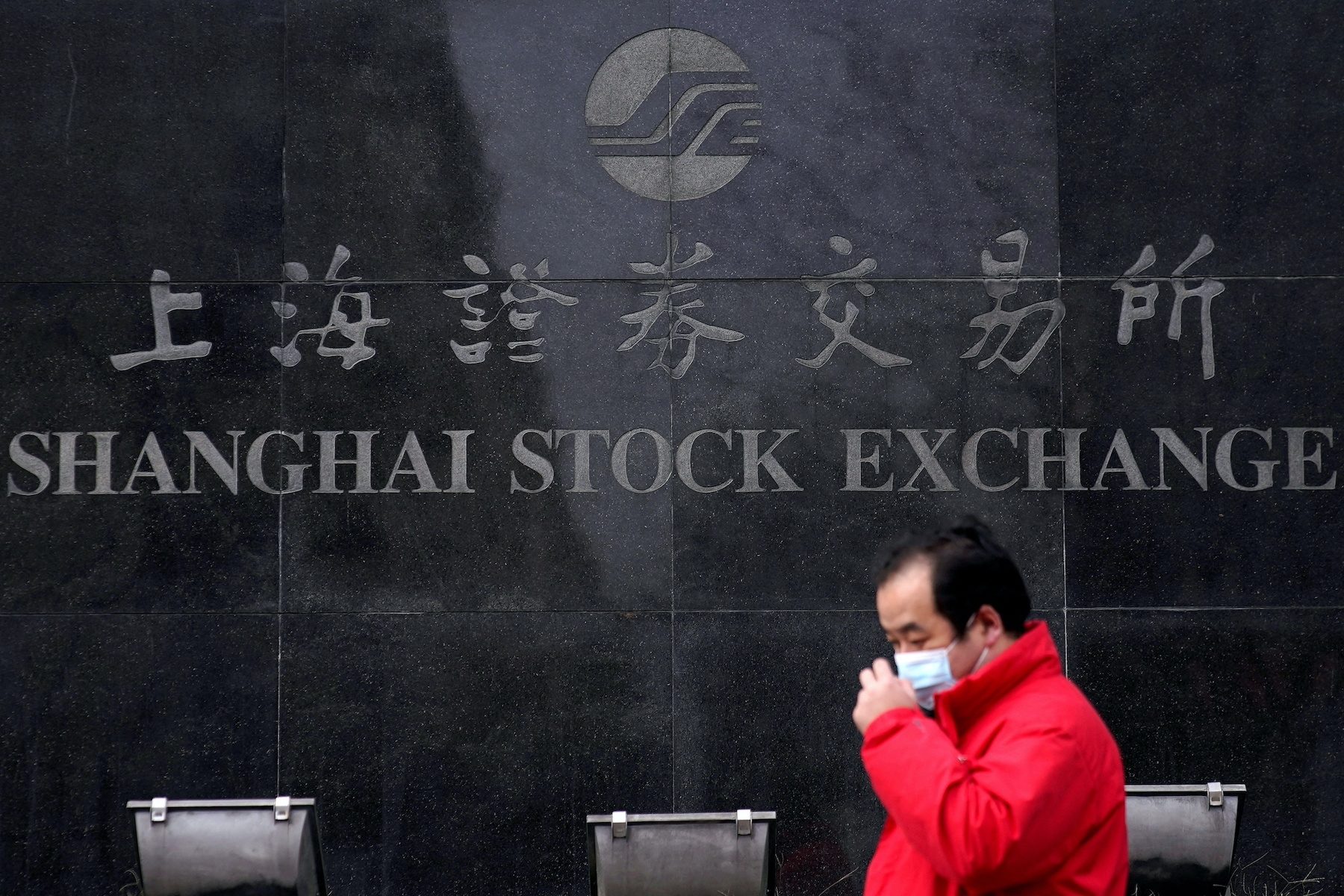SUMMARY
This is AI generated summarization, which may have errors. For context, always refer to the full article.

SHANGHAI, China – China stocks plunged on Monday, April 25, in their biggest slump since the pandemic-led panic-selling in February 2020, on heightened worries of a country-wide COVID-19 outbreak and fears of strict restrictions being imposed in the capital city of Beijing.
The blue-chip CSI300 index fell 4.9% to close at a two-year low of 3,814.91, while the Shanghai Composite Index tumbled 5.1% to 2,928.51 points.
Both indexes have erased all gains made since Vice Premier Liu He’s pledge on March 16 to support the economy and financial markets.
Hong Kong shares declined the most in six weeks. The Hang Seng index fell 3.7% to 19,869.34, while the China Enterprises Index lost 4.1% to 6,684.73 points.
China’s yuan also fell to a one-year low against the dollar, extending losses after posting its worst week since 2015, while a worsening economic growth outlook drove investor concerns that the currency could weaken further.
Dozens of cities across the country are under either full or partial lockdowns, which have disrupted supply chains, affected economic activities, and raised doubts whether China will be able to reach this year’s growth target of about 5.5%.
As Shanghai still grapples with the COVID-19 outbreak amid prolonged strict lockdowns, Beijing began mass testing for all residents of its biggest district, Chaoyang, after dozens of cases were reported, prompting residents to snap up food and other supplies.
“The poor sentiment is because of fear of potential lockdowns which are starting to multiply beyond Shanghai,” said Gary Ng, Asia Pacific economist at Natixis. “If the situation gets worse and we see more lockdowns that would have more pressure on the equities market.”
The rout came even after Reuters reported that some Chinese state banks would cut deposit rate ceilings on Monday, joining smaller lenders. Meanwhile, China’s central bank has repeatedly said it would step up support to the economy and maintain market stability.
Despite frequent pledges, analysts and traders said they were disappointed by the less-than-expected reserve ratio cut and rate reductions, and the key issue remained whether China would loosen its zero-COVID-19 policy, which is worsening its growth outlook.
The Shanghai Composite Index dropped below the key 3,000-point level, a psychological comfort zone for Chinese investors, and Ng at Natixis said it may trigger further sell-offs if no strong policy announcement is made in the next few days.
Most sectors fell, with resource stocks, semiconductors, and new energy firms plunging more than 7% each to lead the losses.
Banks fell 4.7% as lower deposit rates are expected to hurt their margins, while sentiment was further dented as Chinese President Xi Jinping accelerated a corruption crackdown in the financial sector.
The country’s top anti-graft watchdog said China Merchants Bank’s ex-president, Tian Huiyu, is “suspected of serious violations of disciplines and laws” and is being investigated, sending the bank’s shares tumbling more than 8% in Shanghai and more than 10% in Hong Kong.
Tech giants listed in Hong Kong lost nearly 5% while mainland developers trading in the city ended 2.7% lower.
Hotpot chain Haidilao International Holding slumped more than 15% to become the biggest percentage decliner in the Hang Seng benchmark index. – Rappler.com
Add a comment
How does this make you feel?







![[Time Trowel] Evolution and the sneakiness of COVID](https://www.rappler.com/tachyon/2024/02/tl-evolution-covid.jpg?resize=257%2C257&crop=455px%2C0px%2C1080px%2C1080px)


There are no comments yet. Add your comment to start the conversation.